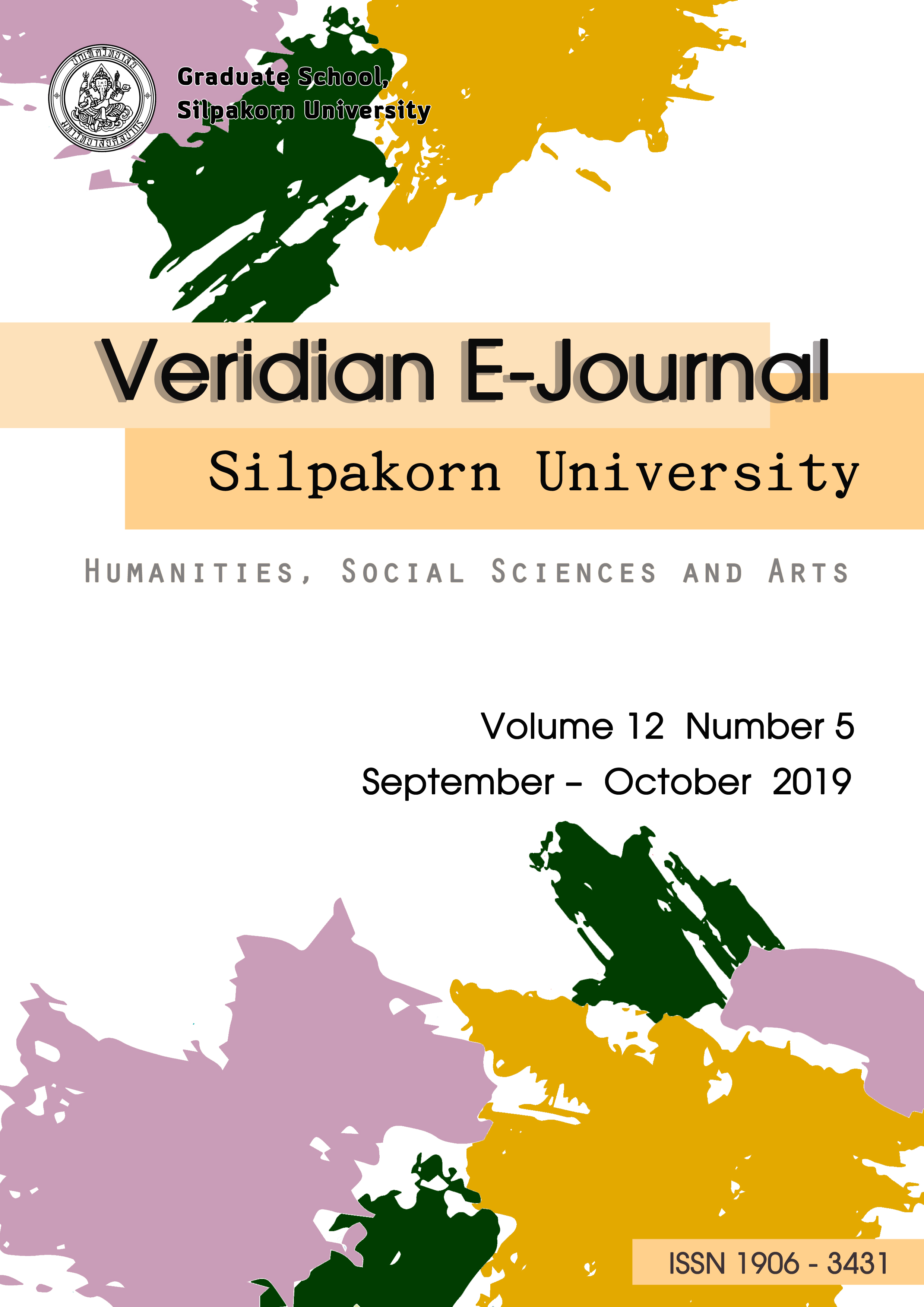คุณลักษณะผู้ประกอบการ ภูมิความรู้ความชำนาญที่นำไปสู่ความสำเร็จทางธุรกิจของผู้ประกอบการกลุ่มเจนเนอเรชั่นวาย (The Effects of Human Capital Entrepreneur characteristic on the successful operation of Gen Y)
Main Article Content
Abstract
การวิจัยครั้งนี้มีวัตถุประสงค์ 1. เพื่อศึกษาโมเดลความสัมพันธ์โครงสร้างเชิงเส้นของปัจจัยความสำเร็จในการดำเนินธุรกิจของผู้ประกอบการกลุ่มเจนเนอเรชั่นวาย 2. เพื่อตรวจสอบความสอดคล้องของตัวแบบความสัมพันธ์ภายในของปัจจัยเชิงสาเหตุของผลการดำเนินงานที่พัฒนาขึ้นกับข้อมูลเชิงประจักษ์ ผู้วิจัยดำเนินงานวิจัยโดยใช้ การศึกษาวิจัยเชิงปริมาณ ใช้แบบสอบถามเป็นเครื่องมือในการเก็บรวบรวมข้อมูลจากผู้ประกอบการกลุ่มเจนเนอเรชั่นวาย จำนวน 343 คน ทั้งนี้ได้รับแบบสอบถามคืนกลับมา 343 ชุด สถิติที่ใช้ในการวิเคราะห์ข้อมูล ได้แก่ การแจกแจงความถี่ การหาค่าเฉลี่ย ค่าร้อยละ และการวิเคราะห์โมเดลสมการโครงสร้าง (Structural Equation Modeling)
ผลการวิจัยพบว่าการวิเคราะห์โมเดลสมการโครงสร้างด้านอิทธิพลเส้นทางที่ส่งผลต่ออิทธิพลทางตรง (1) คุณลักษณะผู้ประกอบการส่งอิทธิพลทางตรงต่อภูมิความรู้ความชำนาญ และความสำเร็จทางธุรกิจ (2) ภูมิความรู้ความชำนาญส่งอิทธิพลทางตรงต่อความสำเร็จทางธุรกิจ (3) คุณลักษณะผู้ประกอบการส่งอิทธิพลทางอ้อมต่อความสำเร็จทางธุรกิจ ผ่านภูมิความรู้ความชำนาญ ทั้งนี้ค่าดัชนีความสอดคล้องของโมเดลสมการโครงสร้างที่ได้จากการวิเคราะห์ ได้แก่ c2= 64.11, df = 51, c2/df = 1.257, P-value = 0.103, RMSEA = 0.027, GFI = 0.970, AGFI = 0.950 แสดงให้เห็นว่าผลที่ได้รับจากการศึกษาวิจัยในครั้งนี้โมเดลสมการโครงสร้างมีความสอดคล้องกลมกลืนกับข้อค้นพบที่เป็นข้อมูลเชิงประจักษ์
The purpose of this research were to (1) study the linear structural relationship model for critical success factors of entrepreneurial of the generation Y, and (2) examine the consistency in relationship model of causal factors of developed results with empirical data. The research was used a mixed method research. The qualitative data were collected through in-depth interviews about the factors related to business success of entrepreneurial of the generation Y. The key informants were 17 persons. The quantitative data were collected by using a questionnaire from entrepreneurial of the generation Y who were 343 participants but received it back 343 questionnaires. That data were analyzed by means of content and using descriptive statistics methods, including frequency, percentage, mean, standard deviation, Pearson correlation coefficient, and structural equation modeling.
The results of study were as follows: The linear structural relationship model of critical success factors of entrepreneurial of the generation Y were (1) the characteristics of entrepreneurial positive directly affected knowledge and specialization, and business success of entrepreneurial in low level at the statistical significance. (2) The knowledge and specialization of entrepreneurial positive directly affected business success of entrepreneurial in high level at the statistical significance. (3) The characteristics of entrepreneurial positive indirectly affected business success. The index of the consistency in structural relationship model were c2 = 64.11, df = 51, c2/df = 1.257, P-value = 0.103, RMSEA = 0.027, GFI = 0.970, AGFI = 0.950.

